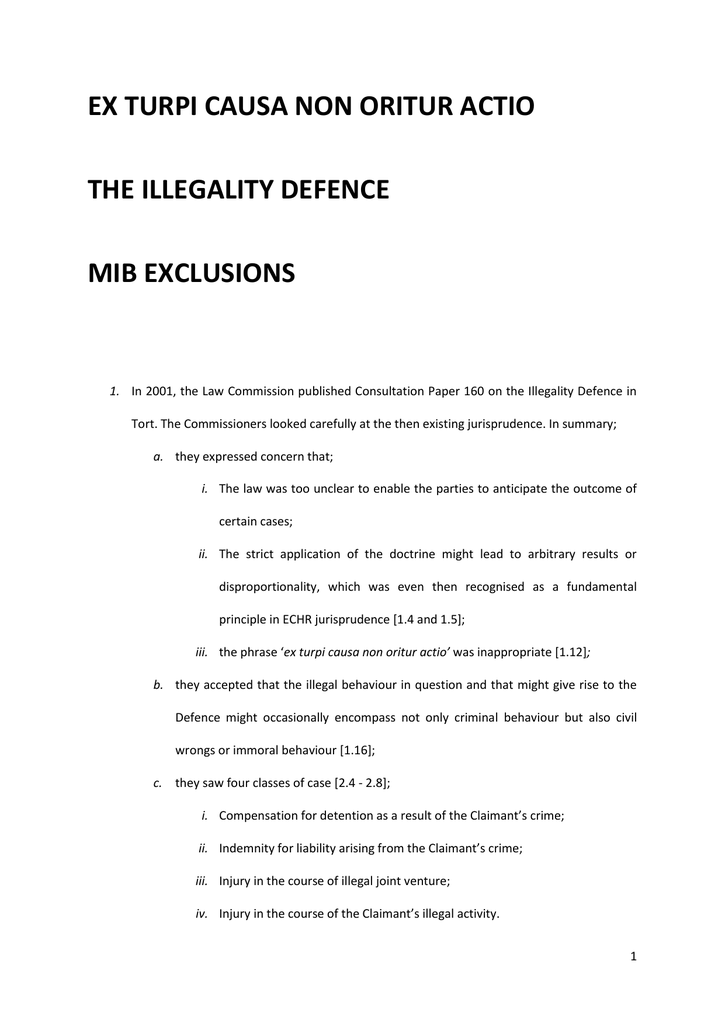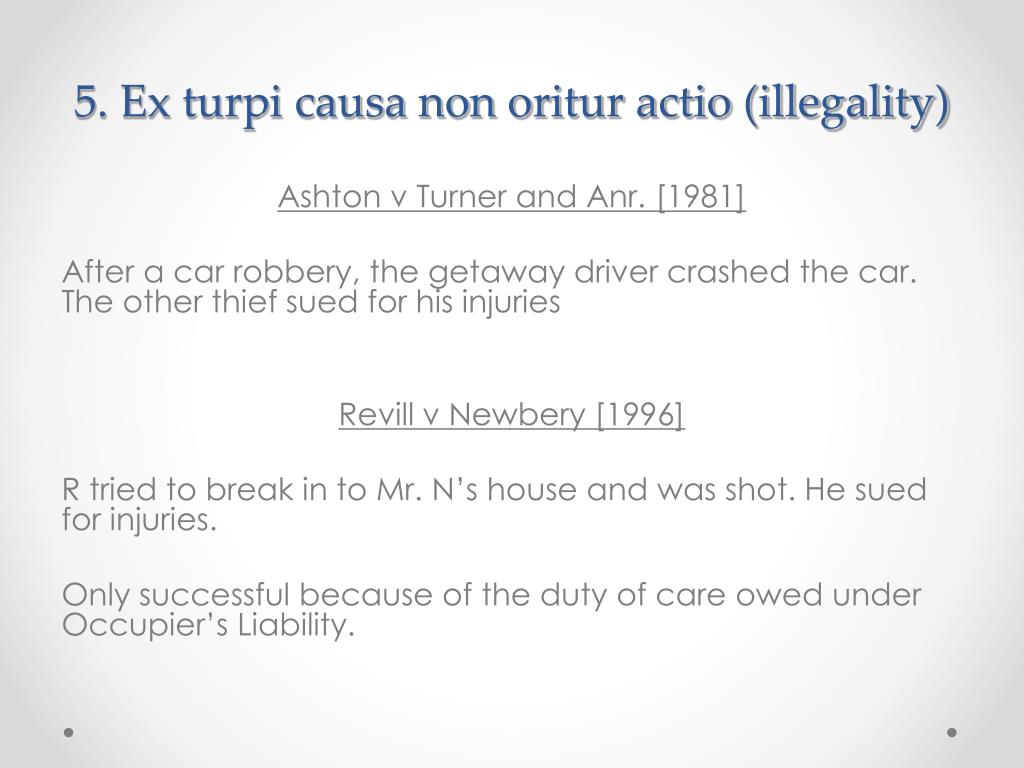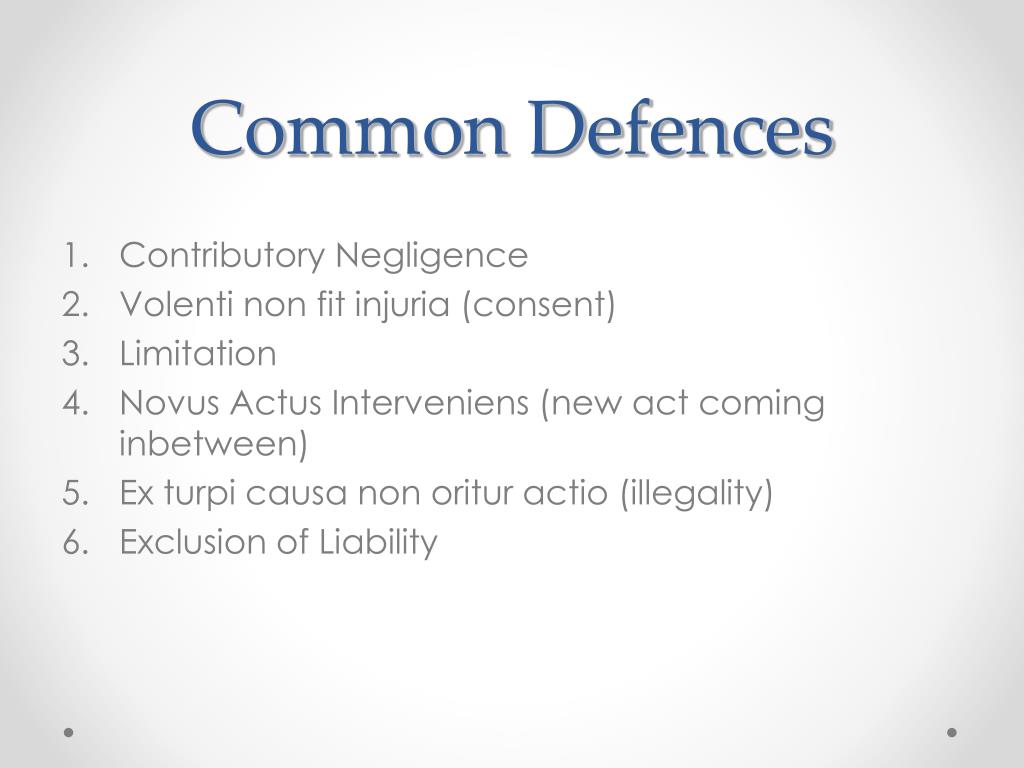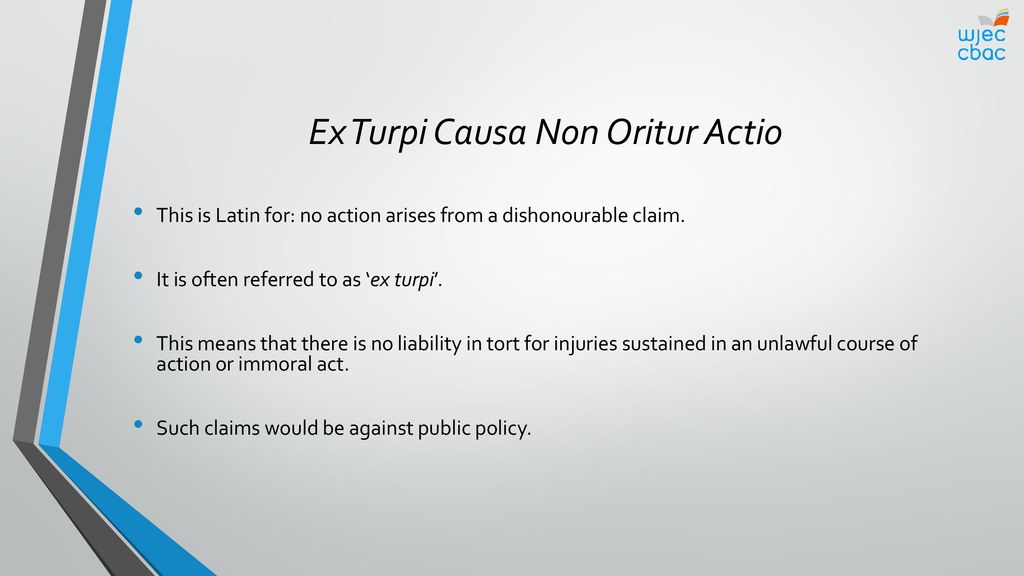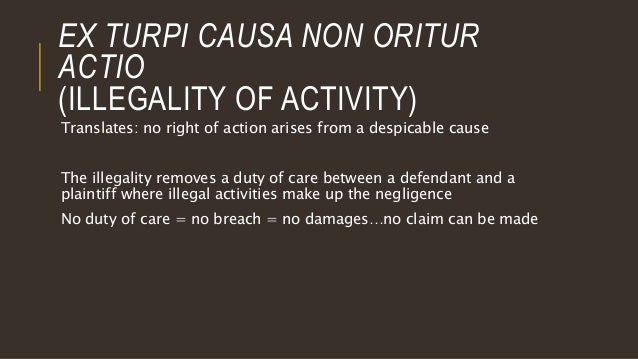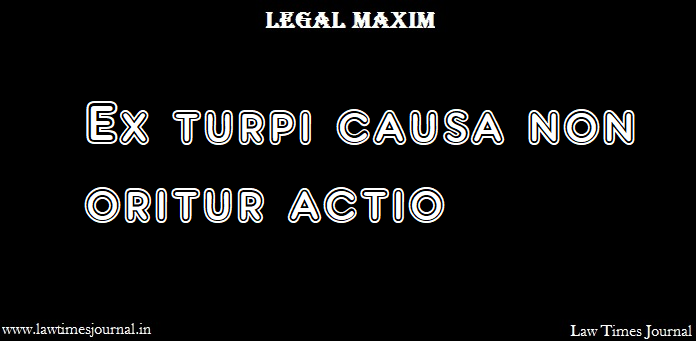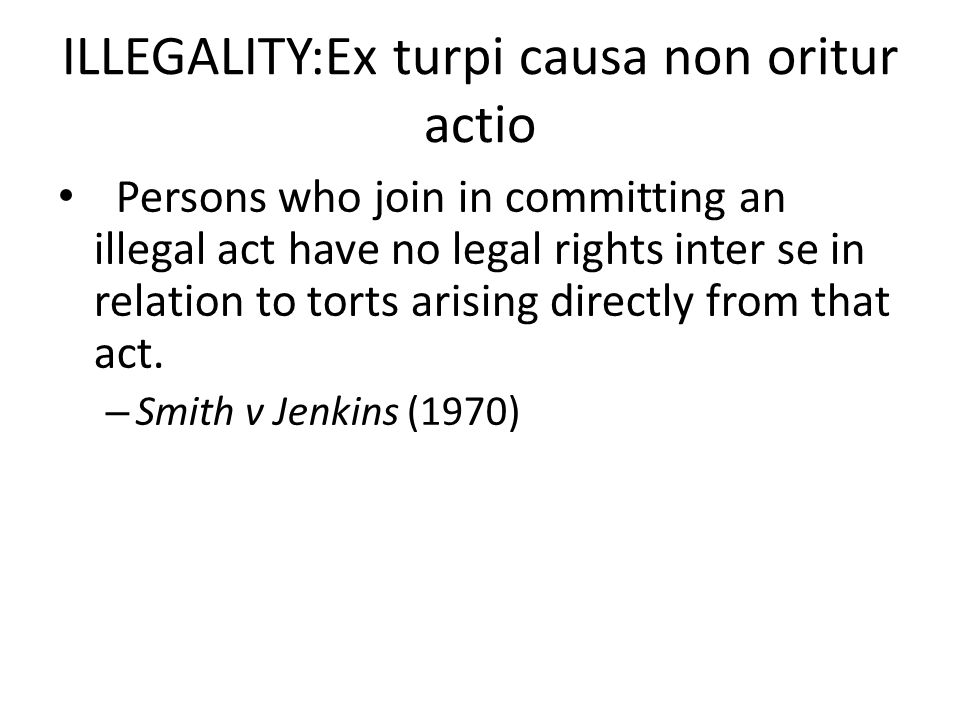Ex Turpi Causa Non Oritur Actio Defence

It is often referred to as the illegality defence although it extends.
Ex turpi causa non oritur actio defence. This maxim applies not only to tort law but also to contract restitution property and trusts. A defendant may raise illegality as a defence if the claimant was engaged in illegal enterprise when the harm occurred. Therefore this is also known as the plaintiff a wrongdoer defense. In scott v brown 1892.
It is not uncommon for insurers to raise this at the slightest opportunity in order to avoid a claim. Ex turpi causâ non oritur actio this old and well known legal maxim is founded on good sense and expresses a clear and well. Ex turpi causa non oritur actio latin from a dishonorable cause an action does not arise is a legal doctrine which states that a plaintiff will be unable to pursue legal remedy if it arises in connection with his own illegal act. C s conduct must be very closely connected with the illegality or defence will fail.
Ex turpi causa non oritur actio. Where the maxim of ex turpi causa is successfully applied it acts as a complete bar on recovery. It is founded on the principle that a right of action will not arise from a base cause and means that compensation will not generally be recoverable for breach of a contract tainted by illegality. The latin maxim ex turpi causa non oritur actio refers to the fact that no action may be founded on illegal or immoral conduct.
Particularly relevant in the law of contract tort and trusts ex turpi causa is also known as the illegality defence since a defendant may plead that even. Maxim ex turpi causa non oritur actio no action arises from a disgraceful cause. Ex turpi causa non oritur actio is one of the defences available to the defendant. Post author by kierxote.
This is based on the maxim ex turpi causa non oritur actio no action arises from a disgraceful cause. It is an absolute defence and therefore if successful the defendant is not liable for any damage. If claimant c engaged in illegal enterprise when harm occurred. It can also be used as a defense against claimants that had used for example a vehicle during the act of an illegal offense and then subsequently tries claiming for breach of duty against a third party.
It is one of the defenses which can exempt the defendant from his liability because the plaintiff has also committed an illegal act. In other words if one is engaged in illegal activity one cannot sue another for damages that arose out of that illegal activity. Defendant d can raise absolute defence. Injury claims and the defence of ex turpi causa ex turpi causa is a legal doctrine which states that a claim will not succeed if it arises in connection with the claimant s own illegal act.
This defence is very complicated as a result of which the courts had to come up with many different tests in determining the applicability of this defence.
